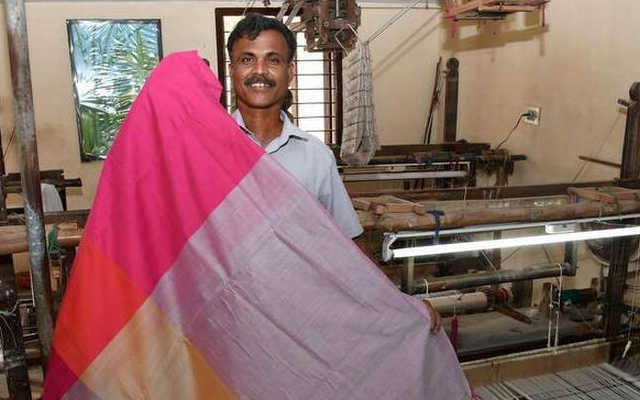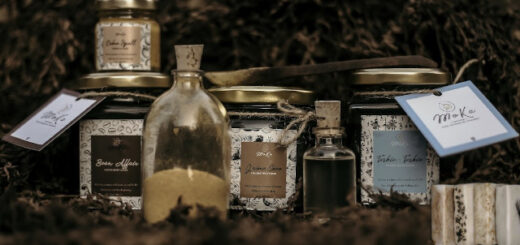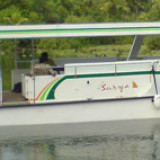Banana Plant Stem Fibre: A Boon
Natural fibres are environmentally beneficial since they disintegrate and prevent the formation of landfills. The newly developed ‘herbal sarees,’ which infuse the natural fibre yarn with turmeric, tulsi, neem, and sandalwood, are rich in herbs and spices that are nourishing to the skin. Though dye is applied, it is used sparingly, and numerous natural dyes such as turmeric, coffee powder, hibiscus, and madder are also utilised, lowering prices and protecting the environment. It provides a new method of decreasing trash as well as new job opportunities.
C. Sekar’s Innovation:
Mr. C. Sekar, hailing from the once-famous town of Anakaputhur, Chennai, creates beautiful saris and fabrics using banana plant stem fibre. Anakaputhur was renowned for its booming traditional weaving businesses, but this reputation was wiped out soon by modern competition and changing times in the industrial sector. Sekar was inspired to come up with his brilliant idea after reading a reference in the Ramayana about vazhai naar or banana fibre woven into an elegant sari by Hanuman, for Sita.
 Image Source : The Hindu newspaper
Image Source : The Hindu newspaper
Sekar walks us through the manual process:
- He places a board of cut banana stem on a flat table and begins scraping it with the sharp blade of a knife. This action removes all of the fleshy parts and juices from the stem, leaving only the naked fibres
- These fibres are then extracted, gathered, and sun-dried to make them firm and durable. The gathered mass of fibres is spun into yarn, which is then looped around a spindle
- The yarn is then stained in natural colours after being blended with cotton strands. They are then affixed using looms, to start weaving beautiful saris and garments
- After that, the woven cloths are treated with cow dung, and skin-friendly herbs such as tulsi, mint, and others
Resources:
What they appear to need is the financial support to afford machinery to make 100 percent fibre saris, given the size of operations required to meet market expectations. Banana stems are plentiful, but physical separation of fibres from the stems is time-consuming and labor-intensive. They do not have the option of entering into machine production because the development of a machine that would make continuous banana yarn is not accessible to them.
Sekar is a pioneer in weaving using natural fibres sourced from plants such as banana stem, aloe vera, vetiver, jute, hemp, pineapple, bamboo, and others, with a total of 25 different plant fibre variations. Weaving is our tradition, and it is dying out, yet there is no government help, Sekar explains.
This is a completely green endeavour because he uses only natural resources throughout the manufacturing process. It is fully organic, from dyes to processing, and no chemicals are involved at any stage.
According to Sekar, because banana is abundantly grown in Tamil Nadu, there is enough of room for these organic weaves. International acclaim has been bestowed upon the entrepreneur who focuses heavily on promoting women.
This skill and business can also be practised in Kerala, which has extensive banana plantation facilities, and thus has excellent prospects for such an endeavour.
Prospects in Kerala for banana plant stem fibre textile business
Following favourable conditions show that banana plant fibre textile business is suitable for Kerala as well:
- Banana plantation is present in all districts of Kerala state
- Banana cultivation is possible throughout the year in Kerala
- Statistics show that in Kerala, 60678 hectares of land were reported to have used for banana cultivation during the period of 2019-20
It shows that the conditions are ideal for entrepreneurs in Kerala to come forward and start the business.































